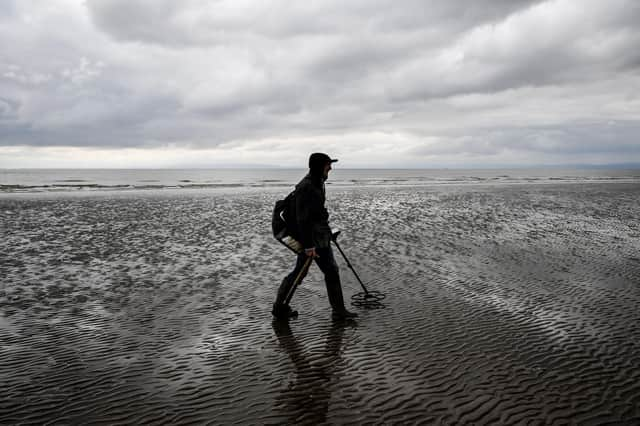Fall in treasure finds in Lincolnshire last year


The were fewer treasure finds reported in Lincolnshire last year, new provisional figures show – despite a record number of finds across the country.
It comes as the number of detectorists across the UK continues to grow, with the Institute of Detectorists raising concerns about the supply of historical artefacts possibly running out.
Advertisement
Hide AdAdvertisement
Hide AdData collected by the Department of Portable Antiquities and Treasure at the British Museum shows 58 treasure finds in Lincolnshire were recorded in 2022 – down from 62 the year before.
The figures show the number of reported treasure finds for 2021 and provisional figures for 2022 within England, Wales and Northern Ireland.
Detectorists use metal detectors to scour open land for buried items – occasionally unearthing historic coins, pottery or other historic items.
The amount of buried treasure discovered across the nations reached a new high last year with some 1,378 finds in 2022, marking the ninth consecutive year that the 1,000 mark has been exceeded.
Advertisement
Hide AdAdvertisement
Hide AdThe South East of England held onto its title as the country’s buried treasure hotspot with 349 finds last year, accounting for 25% of all treasure finds.
In the East Midlands, there were 122 finds in 2022.
Keith Westcott, founder of the Institute of Detectorists, said: "The number of active detectorists has been steeply rising since the Covid lockdown."
He added the 2021 Portable Antiquities Annual Report suggested there might be as many as 40,000 active metal-detectorists in the United Kingdom.
"Current estimates for 2023, raise this figure to 50,000," he said.
Advertisement
Hide AdAdvertisement
Hide AdHe added the "amazing and precious" resource of portable heritage is being depleted as more people take up metal detecting.
He noted just 3,000 metal detectorists are recording with the Portable Antiquities Scheme which is managed by the British Museum and records archaeological finds discovered by the public.
Overall, around a quarter of the found objects and a quarter of the found coins were acquired by or donated to museums – totalling 270 additions.
The finalised figures for 2021 show there were 1,072 finds recorded. Of these, 96% of treasure finds were discovered by metal detecting, 3% were archaeological finds and 1% were chance finds or were found via mudlarking.
Advertisement
Hide AdAdvertisement
Hide AdSeparately, a Department for Culture, Media and Sport survey in 2022-23 found an estimated 1% of adults in England said they had taken part in metal detecting at least once in the 12 months prior to the survey.